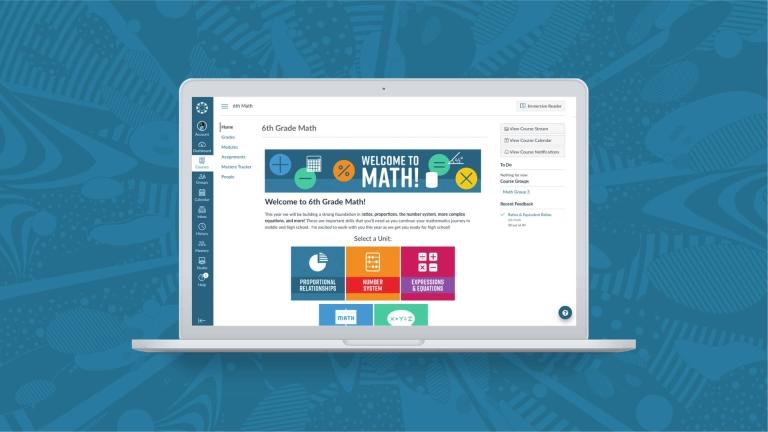
We see accessibility the same way we see education: everyone deserves equitable access. However, like many organizations, the past year has been a period of significant change for Instructure. While the world at large scrambled to adapt to a mainly remote format, we quickly worked to support that transition for teachers and learners. It was sometimes very hard, but what has emerged is a spirit of advocacy and an even greater commitment to our shared purpose: to build and maintain inclusive products that meet the diverse accessibility needs of our users.
Our philosophy: Proactive, Inclusive, Autonomy, Access
- We embrace a simple philosophy that puts accessibility at the heart of everything we do. That approach focuses on a few key principles:
- We take a proactive approach to accessibility by acknowledging that no two users are the same; we consider the diverse range of abilities and needs of our users.
- We provide an inclusive learning experience that is usable, flexible, and customizable, recognizing that no two learners are the same.
- We are dedicated to providing an accessible, adaptable, and customizable learning platform that encourages learning autonomy and independence.
- We embrace all users by applying high design standards and adhering to global accessibility requirements, in order to reduce barriers to learning.
- We believe that increasing access to educational opportunities is important for an equitable student experience.
So how do we demonstrate that continued dedication and keep accessibility at the forefront?
It starts with our design and development approaches.
For new features and products, the Accessibility QA Engineers are involved in the end-to-end process., including reviewing designs, testing prototypes, and auditing the finished product or features prior to launch. This allows us to check for any additional bugs that may have been unintentionally introduced and to understand how any new or updated standards and assistive technology affects our products.
In addition, testing is conducted using automated tools, assistive technology (such as screen readers, keyboard testing, etc.), and coding best practices. Third-party accessibility evaluation occurs semi-annually with internal audits conducted with each release.
Reinforcing collaboration & partnership
The Instructure Learning Platform is an open, extensible learning ecosystem made up of interconnected solutions that create the optimal personalized learning environment. That means collaboration and partnership are essential to our success.
One feedback mechanism Instructure established and utilizes is the Accessibility User Group through Access Technology Higher Education Network (ATHEN). ATHEN is a network of higher education professionals committed to improving accessibility for students, teachers, and administrators. ATHEN collects and disseminates best practices and research about access technology in the higher education environment. ATHEN also provides information about recent legal cases and findings involving web accessibility, Office for Civil Rights (OCR) resolutions, and investigations in higher education.
Canvas LMS is certified WCAG 2.1 AA substantially conformant by non-profit third-party WebAIM. Third-party accessibility evaluation occurs regularly, accompanied by regular internal testing to remain conformant with accessibility guidelines.
The Instructure Accessibility Guild is a cross-functional team of advocates that first organized in June 2020. The Guild represents nearly every department in the company, with members’ average tenure at Instructure over four years. Together, members work to ensure an end-to-end understanding of accessibility that otherwise can easily get lost between various departments and teams.
Supporting our users directly
We believe in creating access by design. That’s why we build tools that make it easier for everyone to learn together at their own pace.
Over the past year, our team has logged and fixed numerous customer-reported bugs or issues. These are serviced through our support system, and customers can track progress through a unique case number. We also conduct regular testing (both internal and by a third-party) to identify conformance issues, with processes in place for timely remediation of accessibility issues that are identified.
To learn more about our commitment to accessibility, visit https://www.instructure.com/accessibility.
Related Content
 Teaching-With-Tech-10-Benefits.jpg
Teaching-With-Tech-10-Benefits.jpgBlogs
 untitled_design.jpg
untitled_design.jpgBlogs
 boost_visibility_and_adoption_with_the_canvas_apps_experience_-_thumbnail.png
boost_visibility_and_adoption_with_the_canvas_apps_experience_-_thumbnail.pngBlogs
